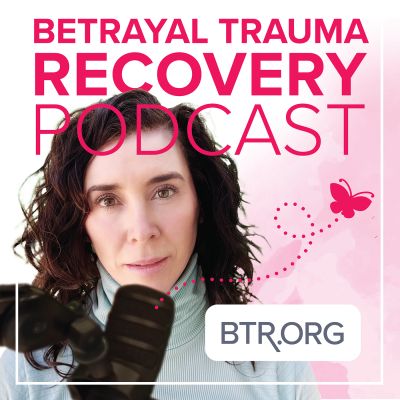btr.org - btr.org has daily, online Group and Individual Sessions for victims of emotional & psychological abuse and sexual coercion. For women experiencing pain, chaos, and isolation due to their husband’s lying, gaslighting, manipulation, porn use, cheating, infidelity, emotional abuse, and narcissistic abuse. Labeling a victim as "codependent" is a form of victim blaming. Pornography addiction / sex addiction are a domestic abuse issue. Narcissistic abuse is not a communication issue. We help women who are married, separated, or divorced heal through establishing emotional safety. If you suspect your husband is a narcissist, a pornography addict, or emotionally abusive, this podcast is for you. Every woman on our team has experienced betrayal trauma first hand. To learn more about Betrayal Trauma Recovery, visit BTR.ORG
https://www.btr.org/podcast/
How To Recognize Victim Blaming
Victim blaming is an insidious form of abuse in and of itself. In the betrayal trauma community, abusers, clergy, therapists, and others blame victims for "their part" in the betrayal and abuse that they experience at the hands of their partners. Recognizing victim blaming is an essential in the toolkit of every victim.
Victim Blaming Is Harmful To Women
"We see time and time again women thinking: If I would have done something differently, if I looked different this wouldn’t have happened to me."
Anne Blythe, founder of Betrayal Trauma Recovery
When women are blamed by abusive partners, family, friends, and professionals for their partner's abusive and compulsive behaviors, there can be deeply harmful effects.
Because victims are conditioned to be compliant, many internalize the false and harmful claims and begin to blame themselves. Further, those close to the victim have the unique opportunity to help and support her. When they choose to blame her, overtly or covertly, they are enabling the abuser and putting the victim into harm's way.
What Does Victim Blaming Look Like?
Wonder if you have experienced victim blaming? Here are some common statements that indicate that others are blaming you for the abuse and betrayal.
* "How have you contributed to your husbands infidelity?"
* "If you make yourself more available, he wouldn't need to act out."
* "If you take care of yourself a little more, he would be more interested."
* "You need to be a safe person so he won't lie to you."
* "You should just forgive him and move on."
* "How can you ever stay with him after this?"
How Can I Respond When I Experience Victim Blaming?
Victim blaming is deeply hurtful to abuse and betrayal victims. Here are some phrases that may help you respond when you experience victim blaming:
* "I don’t have to prove my point, my feelings, or myself and I’m done talking about this for now."
* "That’s not how I see it, I’m walking away."
* "I’m feeling defensive right now so it’s best if we end this conversation."
* "That’s not who I am, this conversation is over."
* "I'm not feeling heard, so I am done with this conversation."
Betrayal Trauma Recovery Supports Victims of Betrayal and Abuse
At BTR, we place the blame where it belongs: with the abuser. Women who join the Betrayal Trauma Recovery community are never blamed for their partner's abusive choices.
Our BTR.ORG Group Sessions meet daily in every time zone and offers women the unique opportunity to process trauma, share their stories, ask important questions, and express hard feelings in a safe place.
https://www.youtube.com/watch?v=kXQkRoZII7I
Jennifer, a member of the BTR.ORG community, shared her own experience with victim blaming on the BTR.ORG podcast. Read the full transcript below.
Full Transcript:
Welcome to Betrayal Trauma Recovery, this is Anne.
I have Jennifer on today’s episode today. She is a member of our community and she follows us on social media. We have accounts on Instagram @BetrayalTraumaRecovery, we’re on Facebook and can find our page if you search Betrayal Trauma Recovery, we’re on Twitter @BetrayalTrauma, and you can follow us on Pinterest. So, she has been watching a lot of these things on social media and she contacted me and said, “You know what, I’m seeing a lot of misogynistic language here that is common and floating around that women are believing and keeping them stuck in the trauma.” She wanted to come to talk about some of the things she’s seen on social media, some of the things she’s heard in her own life,...
